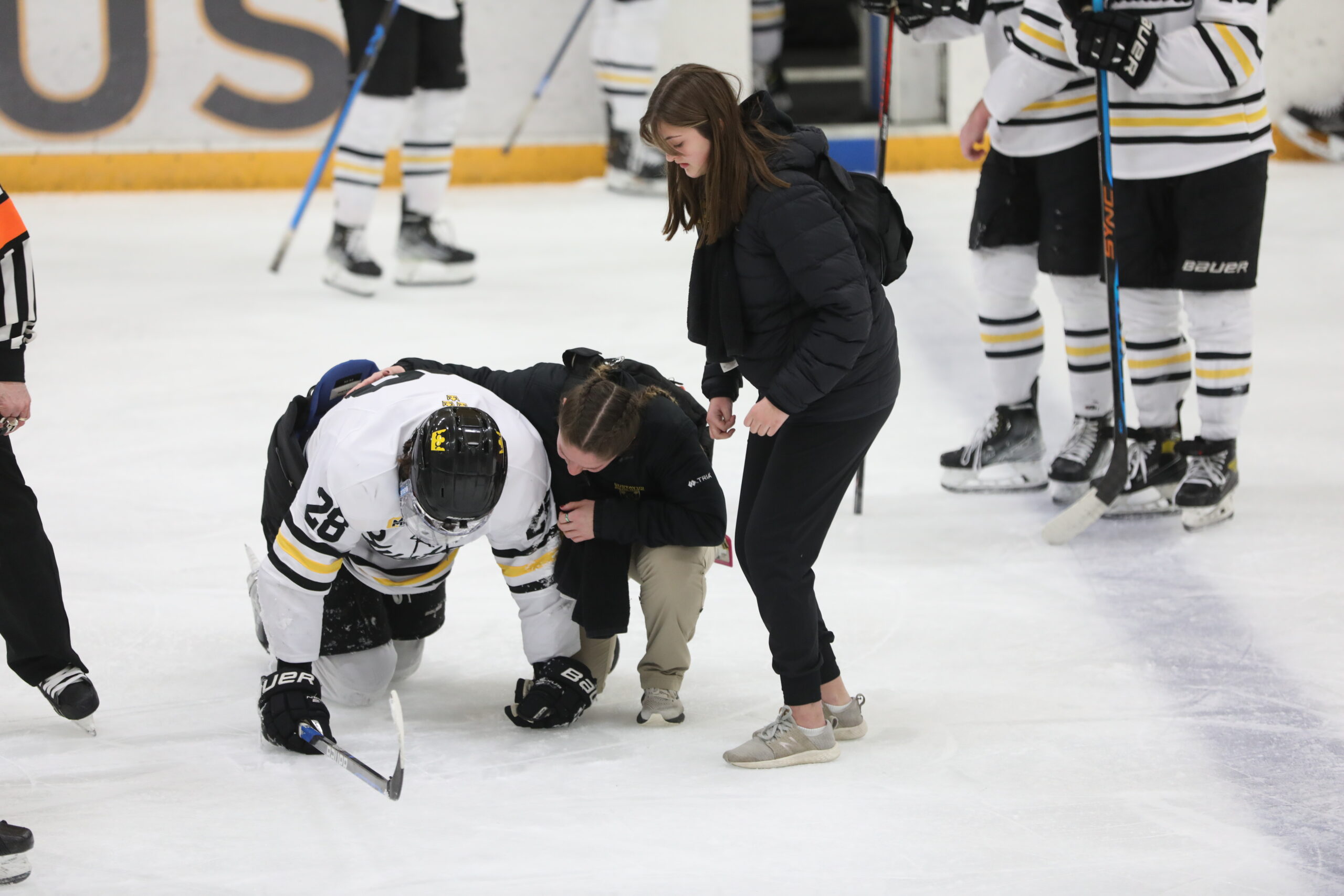Gustavus officials have announced the school’s first-ever master’s degree program for students interested in careers in athletic training and related fields. The College’s new Master of Athletic Training (MAT) program will address current and projected labor shortages and changing national certification requirements for athletic training while capitalizing on the school’s nearly 50-year history of athletic training education. Gustavus will begin accepting applications for the program in fall 2023, and the first cohort of students will begin in summer 2024. The MAT program will have up to 20 slots; ten of those will be held for Gustavus students and will be released if they go unclaimed. Although the MAT program will be available for transfer and new students, the first priority seats will be reserved for current Gustavus students.
The Gustavus MAT program will prepare students for athletic training careers in a wide variety of settings, including colleges and secondary schools, in clinics and hospitals working alongside physicians and interdisciplinary teams, and in the military and industrial workplaces, among others. Consistent with its undergraduate programs, the Gustavus MAT program is built on the foundations of our liberal arts education, developing clinicians with the ability to critically think, analyze and utilize evidence, communicate effectively, and participate in interdisciplinary cooperation for the good of their patients and the field. Gustavus MAT students will get to work closely with Gustavus faculty and gain hands-on experience with student athletes across all 23 sports at the College. Gustavus will be the only college in the Minnesota Intercollegiate Athletic Conference currently offering this degree.
The athletic training field is experiencing a widespread labor shortage as its scope of work has expanded, and professional requirements are changing. As of 2024, the minimum degree requirement for national certification of athletic trainers will be the master’s degree, per a decision by the Commission on Accreditation of Athletic Training Education (CAATE)—the field’s national accrediting body. At the same time, demand for athletic trainers is increasing as people become more aware of the long-term effects of sports-related injuries, and due to the growing middle-aged and older population that wishes to remain active. The U.S. Bureau of Labor Statistics projects that employment of athletic trainers will grow 17 percent between 2021 and 2031.
Gustavus has an illustrious history with athletic training education, making the timing right to inaugurate the College’s first master’s program. The College has graduated 334 students from its undergraduate Athletic Training Program since its inception in 1976. The first full-time Gustavus athletic trainer and educational program founder, Gary Reinholtz, is a member of the National Athletic Trainers’ Association (NATA) Hall of Fame. “Given the recent national certification changes and the College’s long-term success with athletic training instruction, we felt this was the perfect opportunity to launch our first master’s degree program,” says Gustavus Provost Brenda Kelly. “The Gustavus MAT program will be grounded in a holistic liberal arts approach paired with extensive hands-on clinical experiences to prepare our graduates for leadership roles and productive careers in the rapidly growing athletic training field.”
The MAT program is structured as a 3+2 program, meaning that students can obtain both a bachelor’s and a master’s degree from Gustavus in five years. The cost of this program will be $2100 per full credit course (3 semester credit hours), and the inaugural cohort will receive a price guarantee that freezes tuition through program completion. Current Gustavus sophomores will be eligible to apply to the MAT program in the fall of their junior year as part of the first 3+2 cohort. Students who are currently at other schools may apply to the two-year program during their junior year and begin at Gustavus after they’ve received their bachelor’s degree.
The program will emphasize athletic trainers’ roles in the larger healthcare system and foster leadership skills, meaning Gustavus graduates will be well positioned to be at the forefront of the evolving world of healthcare. The program will “expose and explore” a deep foundation of skills development during on-campus coursework and local clinical experiences during the first year. The program’s second year will consist of coursework and multiple clinical immersive experiences that “expand and examine”, enabling students to have unique clinical experiences across the state and country.
For more information, please visit the Gustavus Adolphus College Athletic Training website.

Leave a Reply
You must be logged in to post a comment.